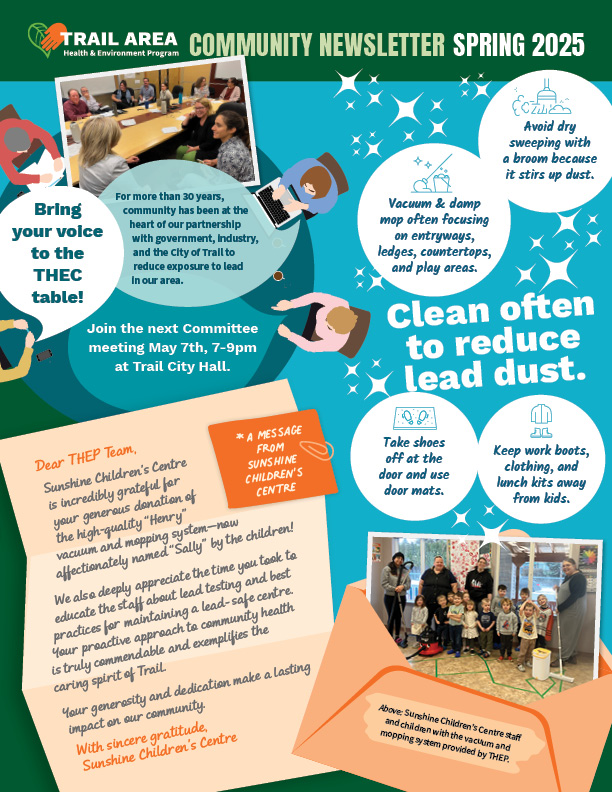This study aimed to determine whether the bioaccessibility of lead (and arsenic and cadmium) in Trail soils could be lowered by adding amendments to the soil. In this second phase of work, samples of Trail soils were amended with phosphate, iron and Celgar pulp mill organic biosolids, in various combinations.
These trials involved applying the amendments to the soils by mixing them in completely (as opposed to Phase 1, in which amendments were applied over grass-covered soils). This phase found that although the combination of phosphate and iron reduced the bioaccessibility of both lead and arsenic in soil, cadmium bioaccessibility was unchanged. The Celgar biosolids resulted in slight decreases in metals bioaccessibility, but they increased the leachability (the potential for the metals to be solubilized in the soil and to move deeper into the soil profile, potentially towards groundwater). Longer term bench tests conducted to simulate natural wet-dry cycles confirmed that a phosphate and iron amendment combination appeared to be the most effective.

